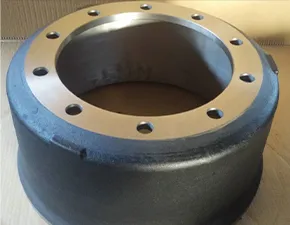
-
 Afrikaans
Afrikaans -
 Albanian
Albanian -
 Amharic
Amharic -
 Arabic
Arabic -
 Armenian
Armenian -
 Azerbaijani
Azerbaijani -
 Basque
Basque -
 Belarusian
Belarusian -
 Bengali
Bengali -
 Bosnian
Bosnian -
 Bulgarian
Bulgarian -
 Catalan
Catalan -
 Cebuano
Cebuano -
 Corsican
Corsican -
 Croatian
Croatian -
 Czech
Czech -
 Danish
Danish -
 Dutch
Dutch -
 English
English -
 Esperanto
Esperanto -
 Estonian
Estonian -
 Finnish
Finnish -
 French
French -
 Frisian
Frisian -
 Galician
Galician -
 Georgian
Georgian -
 German
German -
 Greek
Greek -
 Gujarati
Gujarati -
 Haitian Creole
Haitian Creole -
 hausa
hausa -
 hawaiian
hawaiian -
 Hebrew
Hebrew -
 Hindi
Hindi -
 Miao
Miao -
 Hungarian
Hungarian -
 Icelandic
Icelandic -
 igbo
igbo -
 Indonesian
Indonesian -
 irish
irish -
 Italian
Italian -
 Japanese
Japanese -
 Javanese
Javanese -
 Kannada
Kannada -
 kazakh
kazakh -
 Khmer
Khmer -
 Rwandese
Rwandese -
 Korean
Korean -
 Kurdish
Kurdish -
 Kyrgyz
Kyrgyz -
 Lao
Lao -
 Latin
Latin -
 Latvian
Latvian -
 Lithuanian
Lithuanian -
 Luxembourgish
Luxembourgish -
 Macedonian
Macedonian -
 Malgashi
Malgashi -
 Malay
Malay -
 Malayalam
Malayalam -
 Maltese
Maltese -
 Maori
Maori -
 Marathi
Marathi -
 Mongolian
Mongolian -
 Myanmar
Myanmar -
 Nepali
Nepali -
 Norwegian
Norwegian -
 Norwegian
Norwegian -
 Occitan
Occitan -
 Pashto
Pashto -
 Persian
Persian -
 Polish
Polish -
 Portuguese
Portuguese -
 Punjabi
Punjabi -
 Romanian
Romanian -
 Russian
Russian -
 Samoan
Samoan -
 Scottish Gaelic
Scottish Gaelic -
 Serbian
Serbian -
 Sesotho
Sesotho -
 Shona
Shona -
 Sindhi
Sindhi -
 Sinhala
Sinhala -
 Slovak
Slovak -
 Slovenian
Slovenian -
 Somali
Somali -
 Spanish
Spanish -
 Sundanese
Sundanese -
 Swahili
Swahili -
 Swedish
Swedish -
 Tagalog
Tagalog -
 Tajik
Tajik -
 Tamil
Tamil -
 Tatar
Tatar -
 Telugu
Telugu -
 Thai
Thai -
 Turkish
Turkish -
 Turkmen
Turkmen -
 Ukrainian
Ukrainian -
 Urdu
Urdu -
 Uighur
Uighur -
 Uzbek
Uzbek -
 Vietnamese
Vietnamese -
 Welsh
Welsh -
 Bantu
Bantu -
 Yiddish
Yiddish -
 Yoruba
Yoruba -
 Zulu
Zulu
electromagnetic drum brake
Electromagnetic Drum Brake An Overview of Its Functionality and Applications
Electromagnetic drum brakes are an essential component in many transportation systems, especially in heavy vehicles such as buses, trucks, and trains. These brakes employ an electromagnetic mechanism to exert force on the brake drum, facilitating effective deceleration and stopping power. Understanding how these brakes work, their advantages, and their common applications can provide insights into their vital role in enhancing vehicle safety.
Working Principle
The electromagnetic drum brake operates based on Faraday's law of electromagnetic induction. When current flows through the solenoid winding, it generates a magnetic field that attracts the brake shoes against the brake drum. This mechanism not only creates friction but also allows for more consistent braking performance.
The essential components of an electromagnetic drum brake include the brake drum, brake shoes, solenoid coil, and various mechanical linkages. When the brake pedal is engaged, electricity is supplied to the solenoid, which activates the magnetic field. This field pulls the brake shoes outward against the inner surface of the rotating drum. The friction generated between the shoes and the drum slows down the vehicle. Once the current is cut off, the brake shoes retract, allowing the drum to rotate freely.
Advantages
Electromagnetic drum brakes offer several advantages over traditional braking systems. Firstly, they provide greater stopping power due to the enhanced frictional interaction between the brake shoes and the drum. This makes them particularly well-suited for heavy loads, where efficient braking is crucial for safety.
Secondly, electromagnetic drum brakes exhibit superior thermal management. In high-stress braking situations, the heat generated can be substantial. However, the design of the drum helps dissipate heat effectively, reducing the risk of brake fade, which can occur with other braking systems when components overheat. Additionally, electromagnetic brakes typically have a longer lifespan, as they are less prone to wear compared to disc brakes under certain conditions.
electromagnetic drum brake

Another significant benefit is the simplicity of design
. The fewer moving parts in an electromagnetic drum brake system can lead to lower maintenance requirements and costs. This simplicity also translates into easier installation and integration into existing vehicle designs, making it a preferred choice for manufacturers.Applications
Electromagnetic drum brakes are utilized in various applications spanning multiple industries. In the transportation sector, they are commonly found in public transit systems, such as buses and commuter trains, where reliable stopping power is crucial for passenger safety. Their design also makes them suitable for heavy-duty trucks and trailers, which often face demanding braking scenarios.
Furthermore, these brakes are widely used in industrial machinery, where machinery requires precise control and safety during operation. In scenarios such as conveyors or lifts, electromagnetic drum brakes can provide the necessary stopping force, minimizing the risk of accidents.
In emergency situations or high-traffic environments, the quick response time of electromagnetic drum brakes is invaluable. They ensure that vehicles can stop promptly, thereby enhancing overall safety on the roads.
Conclusion
In summary, electromagnetic drum brakes represent a sophisticated solution for braking in several applications, particularly in heavy-duty vehicles and industrial machinery. Their operational efficiency, durability, and reliability make them a crucial component in ensuring safety in various transportation systems. As technology advances, the integration of electromagnetic braking systems may continue to grow, further improving braking performance and enhancing vehicle safety across the board.
-
What Are Drum BrakesNewsJul.07,2025
-
Understanding Brake Drum MaterialNewsJul.07,2025
-
Semi-Trailer Brake Drum: A Key Component for Extreme Loads and Long-Distance TransportNewsJul.07,2025
-
Drum Brake Pads for SaleNewsJul.07,2025
-
Brake Drums for SaleNewsJul.07,2025
-
Brake Drum ManufacturerNewsJul.07,2025
-
Aluminum Brake Drums: The Future of High-Performance CarsNewsJul.07,2025
